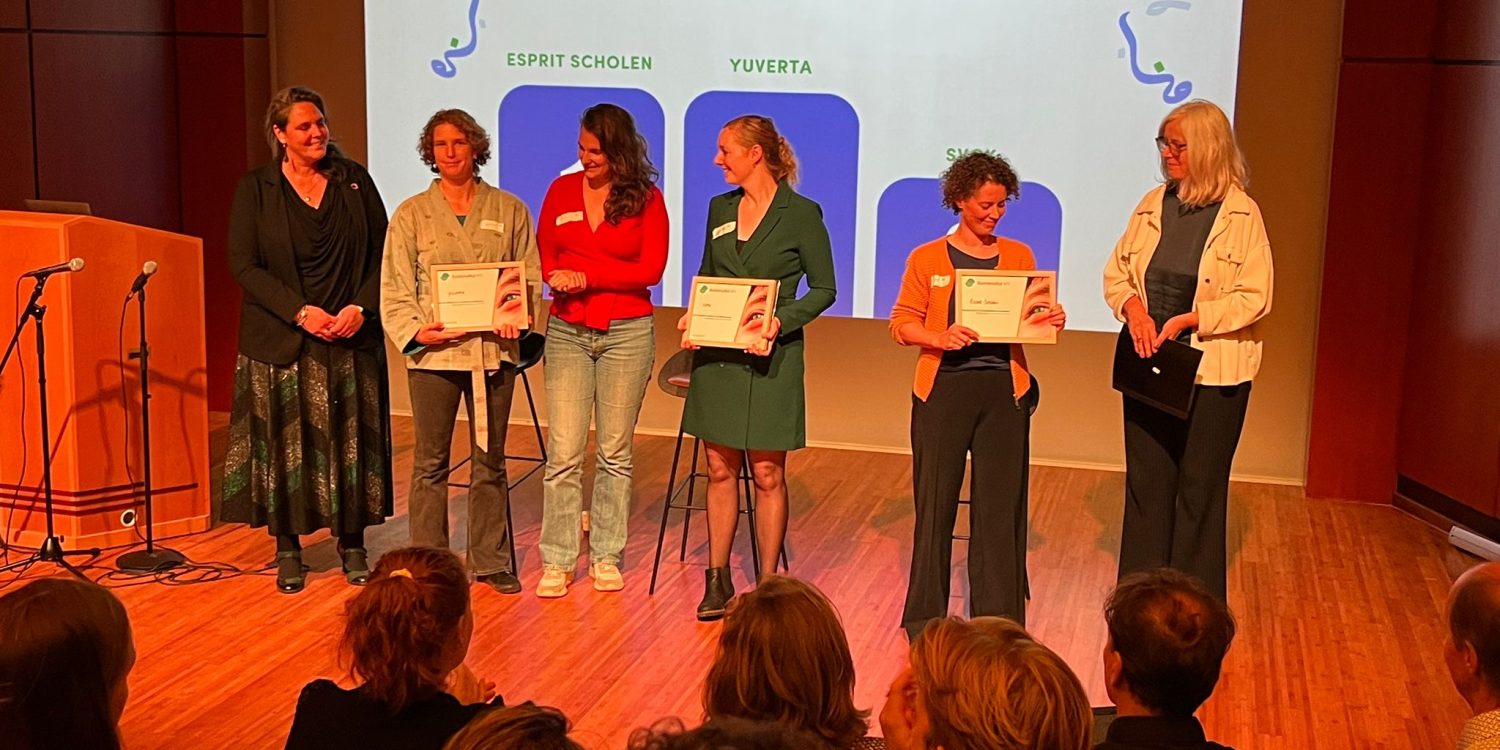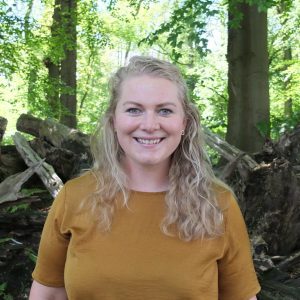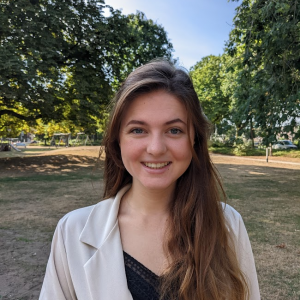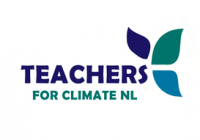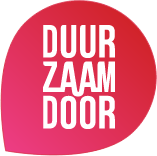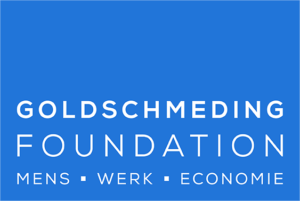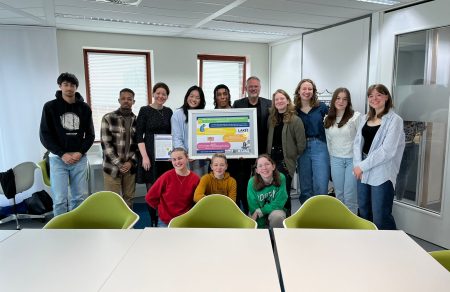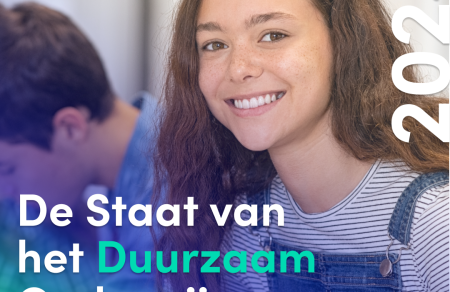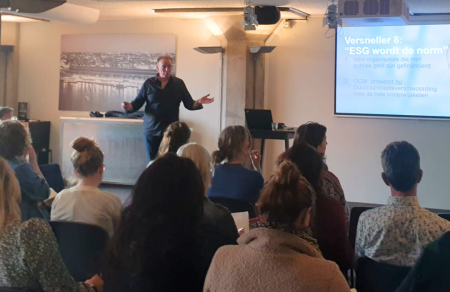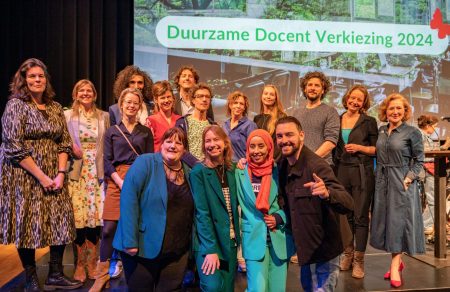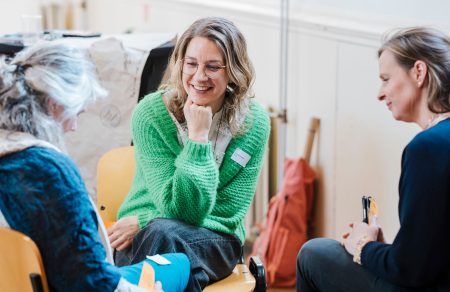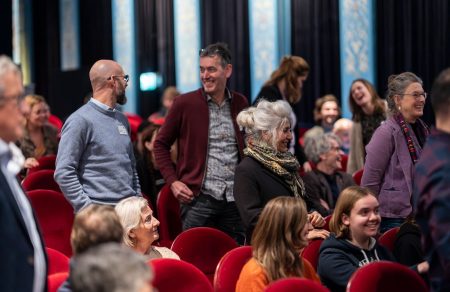The event, organized by Learning for Tomorrow together with Teachers for Climate, brought together administrators, teachers, students, sustainability coordinators and other stakeholders from secondary education. Host location was the Amsterdam International Community School, South East Campus. After a tour of this special educational location by students, a panel discussion on making the school building sustainable took place. Several experiential experts shared how the playing field works, how to involve students and teachers in sustainability plans, and how a sustainable school building can contribute to lesson content. The conversation turned to ownership, developing a common language together and the need to give someone within the school the mandate to be a catalyst; a sustainability coordinator.
The highlight of the afternoon was the festive presentation of the SustainaBul VO. The SustainaBul is a measuring and benchmarking instrument. Schools use a questionnaire to provide insight into the steps they have taken to embed sustainability in their education. The top three participating schools (Esprit Scholen, Yuverta vmbo and Stichting Voortgezet Onderwijs Kennemerland) were on stage to share how they experienced the SustainaBul VO. "It is so important it is that someone at school is given the space to provide insight into how the school is doing, and also the space to then use that information gathered to take the next sustainable steps." After the top three each shared a best practice they are proud of, it was announced who is the winner of the SustainaBul VO 2023
'Yuverta and Esprit Schools together win the SustainaBul VO 2023!'
Yuverta and Esprit Schools can together call themselves the proud forerunners of sustainable secondary education! Both schools participated in the SustainaBul VO as an entire school umbrella and in their responses cited numerous inspiring examples of how they are working to embed sustainable education. Despite the equal final score, Esprit Schools scored just a bit more points in integrating sustainability into education and practice; Yuverta scored better in the area of operations and monitoring. Together, they are clearly the frontrunners in vo. This puts SVOK in a well-deserved second place.
The outcome of the day shows that appointing a sustainability coordinator has an incredibly catalytic effect. And that there is a lot to learn for schools, also within school associations. Thanks to the SustainaBul VO, these best practices can now inspire other schools in the Netherlands to work on sustainable development today.
SustainaBul VO
The SustainaBul is the cooperative benchmark with ranking for sustainability in education. The SustainaBul VO encourages and supports schools to make education more sustainable. Schools help each other with the implementation of sustainability in all facets of the school. Within mbo and ho this benchmark is already well established. With the vo we are in a starting phase. Some 20 schools participate in the network with inspiration and peer review meetings and thus start the conversation at their school about sustainable education. The SustainaBul VO questionnaire was completed for the first time this year. The questionnaire contains questions about the school's operations, education and policies. To properly answer these questions, collaboration between teachers, operations and management is essential.
The SustainaBul VO is organized by Cooperative Learning for Tomorrow (spot 34 in the Trouw Sustainable Top 100) and was made possible in part by the Goldschmeding Foundation and Sustainable By. More information about the SustainaBul VO can be found at www.vo.sustainabul.com
